|
Resume writing is more of a
fine art than an exact science. There is no one
right way to write a resume. There are no rigid
rules for designing or composing a resume. Resume
writers have a lot of flexibility regarding layout,
format and content.
A good resume is the one that
is tailor-made to meet your current job-seeking
needs, one that fits your specific background, your
unique contributions and your personal and
professional goals.
Moreover, your resume should be targeted to the
needs of the employer. It should be written from the
employer’s perspective. It must speak the language
of the employer.
Resume Genius
Resume
Mistakes You Need to Avoid
How to
Write a Great Resume
Resume Writing Tricks
What
Employers Look For in a Resume
Action Verbs &
Power Words
SELLING YOURSELF
Your resume functions as an advertisement of
yourself. It is one of your key sales tools. You are
the product and your resume is the advertisement
that sells that product. It is meant to be an
effective way of marketing and packaging your
product. Your resume presents, promotes and
publicizes you to the job market.
Your resume must spark interest and grab attention.
It must arouse the curiosity of the reader. It must
make the reader want to meet you. It must clearly
differentiate you from your competition. It must
make you stand out.
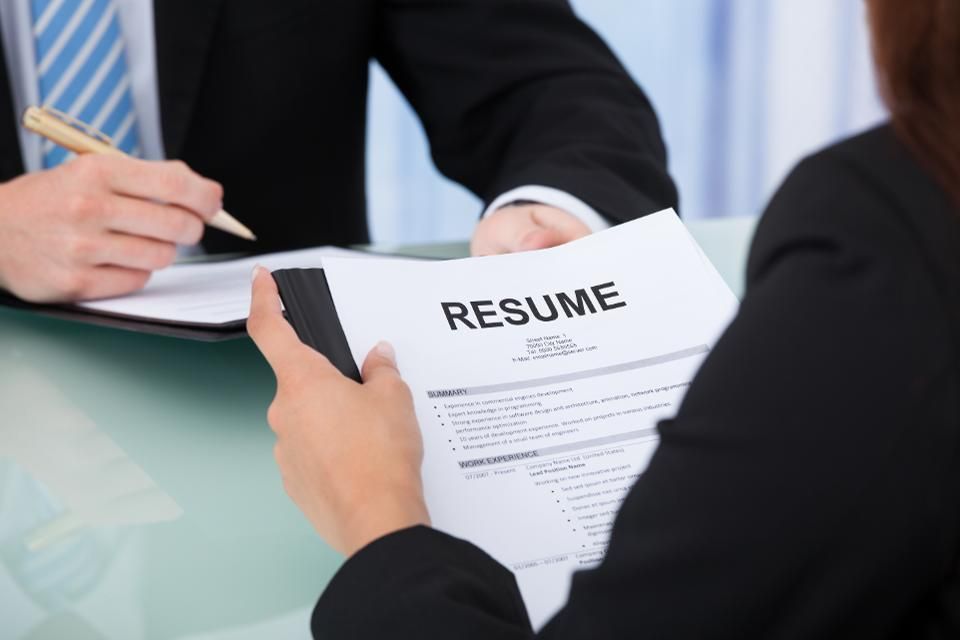
Resume Genius
Resume
Mistakes You Need to Avoid
How to
Write a Great Resume
Resume Writing Tricks
What
Employers Look For in a Resume
Action Verbs &
Power Words
RESUME PURPOSE
What is the purpose of a resume? Your resume does
not get you a job. Your resume gets you an
interview. Your resume is not some obligatory piece
of paperwork or some kind of administrative chore.
It should be written with intention and a great
amount of strategy.
Your resume is not a job application. A job
application form is an official document that
demands specific clerical data. Your resume, on the
other hand, is an unofficial document that includes
only relevant and positive information presented on
your terms. A resume writer has the option of
leaving off any item or piece of information that
might not put the candidate in the best light.
Resume Words
Resume Template
Resume Samples
Cover Letter
EVIDENCE
A good resume will enable you to affirm in writing
your positive and relevant qualities, skills and
characteristics. A good resume presents supportive
information that justifies your job objective. By
stating your work-related accomplishments, duties,
responsibilities, experience and qualifications, you
effectively document your capabilities and provide
evidence of your suitability to the job.
CONTENT
Your resume generally includes highlights and
information drawn from your professional work
experience, educational background, extracurricular
activities and community service. It may also
mention memberships, internships, awards, honors and
distinctions. Experience and activities may be
official or unofficial employment, fulltime or part
time, paid or unpaid.
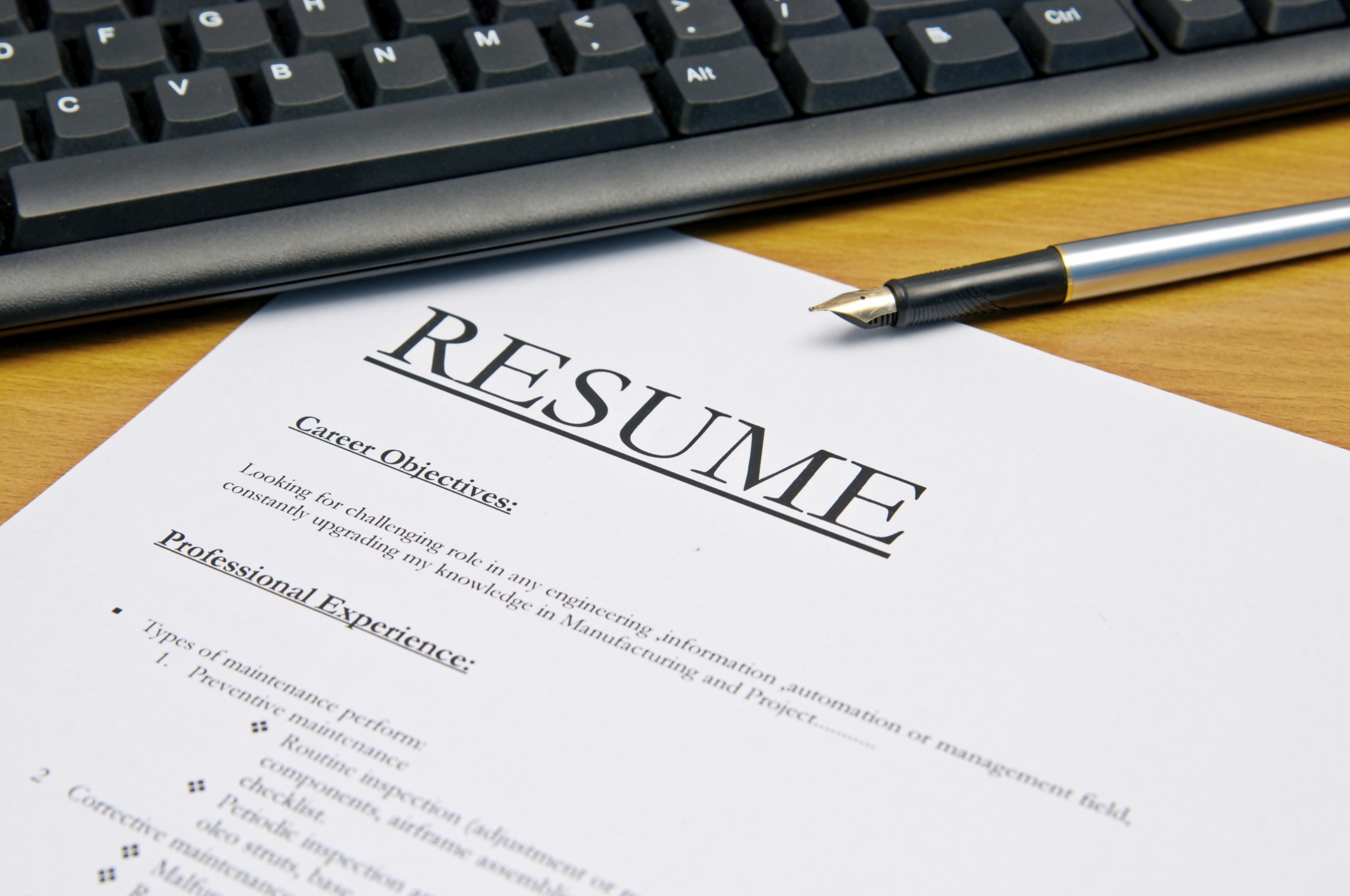
CHOICE CUTS
The information on your resume should be positive,
selective and relevant. Keep your presentation short
and full of spark. Your resume should be a concise
statement of what you've learned from past
experiences and how they will help a future
employer. Your resume must project a positive image.
It must fit both you and the circumstances.
Resume Genius
Resume
Mistakes You Need to Avoid
How to
Write a Great Resume
Resume Writing Tricks
What
Employers Look For in a Resume
Action Verbs &
Power Words
FIRST IMPRESSION
Your resume represents you. It acts as an ambassador
in your behalf. It is a calling card. It is used to
initiate contact. In many cases, the employer will
meet your resume before he or she meets you. Your
resume, therefore, is oftentimes the first
impression an employer has of you. It is up to you
to make this first impression count. Your resume is
also a reminder. After an initial meeting or after
an interview, your resume serves as a record, and
provides positive support for your personal
impression. It helps the interviewer remember you.
Resume Words
Resume Template
Resume Samples
Cover Letter
CONCISE
Your resume is not a lengthy, detailed, official,
historical document of every area of your life. It
is not your life story or your job history. It
should be brief, concise and full of spark. It
should be targeted to a specific job or career
field. The information on your resume should be
positive, selective and relevant. A resume is an
individually designed document that summarizes your
background. It is intended to demonstrate your
fitness for a particular position. It focuses on the
most attractive and applicable aspects of your
background. Every element of your resume must
present you as a perfect match for the job you are
seeking. Keep the reader in mind. Make sure your
resume conveys what you have to offer. Tell what
contributions you can make. Emphasize transferable
skills. Write clearly and simply. Use active,
positive language. Use short, direct, succinct
phrases.
"A resume is the best way and largely the only way
to disseminate important information about yourself.
It is a personal advertisement. A portrait of you in
writing. Just as a picture is worth a thousand
words, so a résumé speaks eloquently in your
behalf."
-BURDETTE BOSTWICK
SPECIAL & UNIQUE
Your resume should present information that clearly
differentiates you from everyone else. What makes
you special and unique? What makes you stand out?
What separates you from the rest? What are your
distinct attributes? In what ways are you better
than your competition?
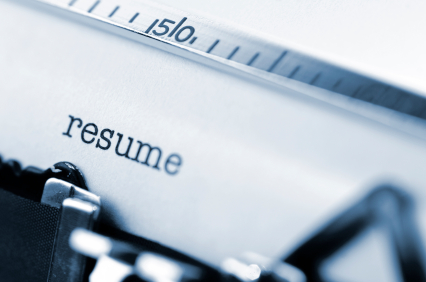
RESUME DETAILS
Resumes generally should be only one page in length.
Resumes should not be detailed. It is not necessary
to list every job. Resumes need not include a
complete job history. Do not tell everything, only
what is relevant to the job being sought.
The resume header should indicate your name in
large, bold type. Use the name by which you are
commonly addressed. Include only one mailing
address. Include telephone number with area code
(home and/or cellphone). You may also include your
e-mail address (Be sure your address doesn’t contain
immature or unprofessional language).
Do not devote undue space to company's address (city
and state only). Do not devote undue space to dates
of employment (years only). Keep company name and
job title simple. Do not include supervisor's name.
Do not include company's telephone number or zip
code. Do not include references on your resume.
Emphasize your job description, functions,
responsibilities, and skills instead of the
company's logistical information.
100 Great Resume Words
100 Powerful Resume Words
Action Verbs & Power Words
Key Words
Forbes Resume Tips
Resume Words That Suck
Resume Power Words
Key Resume Phrases & Words
Useful Resume Words & Phrases
Words & Phrases to Avoid on Your Resume
Resume Action Verbs
Resume Success
500 Resume Action Verbs
Selling Yourself With Action Words
Positive Personality Adjectives
Resume Words With Impact
Descriptive Resume Adjectives
Positive Adjective Glossary
Resume Language
How to Say it: Resume Language

|

|
Job Market
Strategies
Networking Techniques
Interview
Preparation
Skills
Employers Value
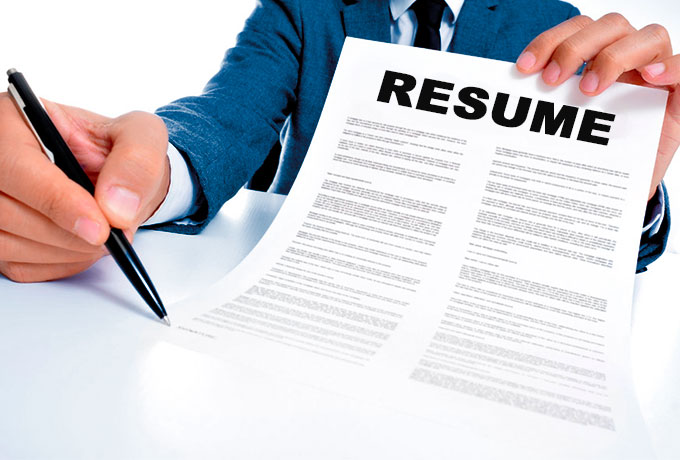
RESUME RULES
Every entry on your resume should include a description of the duties,
responsibilities, activities and skills associated with the experience. There is
no need to differentiate between paid and non-paid experiences. All descriptions
should be stated in terms of their transferability and relevance to the job
being sought. Avoid technical or job-specific jargon unless it is related to the
job you are seeking. Otherwise, use generic or general terms.
Arrange information on resume so that the most current (reverse chronological
order), most important, most impressive or most relevant information is
presented first. Information should be presented in list format, not paragraph
format. Do not use narrative language. Avoid using full sentences or excessive
wordiness. Don't use any personal pronouns (I, me, my, his, her, their). Short
phrases, beginning with action verbs, stated in single lines, work best.
Language patterns, information groupings, verb usage and tense should be
consistent.
Resume Words
Resume Template
Resume Samples
Cover Letter
RESUME ADVICE
Format, layout and organization should be consistent, easy-to-read and
appropriate to the specific occupational field. Make your resume visually
appealing. Presentation should be clean and clear. Balance blocks of text with
white space. Margins should be wide and even. Avoid using font or type style
that is too fancy or exotic. Utilize emphasizing techniques for impact and easy
reading: bold letters, capital letters, italics, bullets, dashes, indenting and
font size variations. Do not use underlining. Use indenting sparingly and
consistently.
Do not include personal data that is irrelevant or meaningless: age, gender,
weight, height, health, marital status, social security number and hobbies. Be
careful with references to race, ethnicity, nationality, politics, religion and
lifestyle. Do not include a photograph unless requested. Do not include grade
point average unless it is very good. Do not include any details that are
negative or that might otherwise minimize your experience (Avoid words like
parttime, temporary, seasonal, pending, expected).
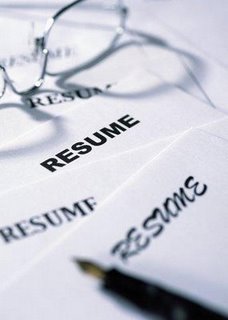
Resume Genius
Resume
Mistakes You Need to Avoid
How to
Write a Great Resume
Resume Writing Tricks
What
Employers Look For in a Resume
Action Verbs &
Power Words
RESUME FOCUS
You can typically arrange and organize the information on your resume into three
categories: Profile (General qualifications, knowledge, experience, skills, and
personality traits), Education (Schools you attended and related degrees,
courses, awards, honors, memberships, and extracurricular activities),
Experience (Jobs and employment, including fulltime or part time, paid or
unpaid, temporary or long term, along with descriptions of responsibilities and
accomplishments).
The tone of your resume should be about what you have to offer, not about what
you are trying to obtain.
Your resume should not be about the companies you have worked for or the schools
you have attended. Instead, your resume should be about you. It should be about
what you did for these companies and what you accomplished at these schools. You
are the star and central focus of your resume.
Your job descriptions should include accomplishments as well as
responsibilities. Indicate achievements, awards, and results. Use numbers and
statistics whenever possible. Emphasize your skills whenever possible. Describe
what skills you used to perform certain tasks. Describe the manner in which you
performed your tasks.
Proofread for typographical errors, misspelled words and poor grammar. Be sure
your language reflects a candidate that is mature and professional.
Resume Words
Resume Template
Resume Samples
Cover Letter
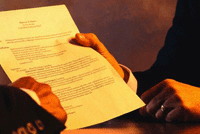
COVER LETTER
Your resume should always be accompanied by a well-written one-page cover
letter. Your cover letter should be written in standard professional business
letter format. Produce each letter individually. It should be a personal letter,
addressed to a specific individual, at a specific company or organization, and
making reference to a specific job. Never send a form letter. It is best to use
a more exploratory, open-ended, introductory tone in your cover letter, rather
than a more assertive, application-oriented tone. Think of it as a letter of
introduction instead of a letter of application.
Avoid salutations that sound too impersonal or too general, for example: Dear
Sir… Dear Sir/Madam… To Whom It May Concern. The letter should be single spaced.
Use active rather than passive voice. Edit carefully, double-checking for
spelling, grammar, or typographical errors. Use the same matching brand,
letterhead, and paper for your cover letter as your resume. You may wish to use
this sample cover letter as a guide in producing your own unique letter.
Resume Genius
Resume
Mistakes You Need to Avoid
How to
Write a Great Resume
Resume Writing Tricks
What
Employers Look For in a Resume
Action Verbs &
Power Words
RESUME LAYOUT
Your resume should have a clean, well-balanced and professional look. It should
be visually appealing, graphically attractive, and verbally compelling. Keep it
simple. Regardless of chosen format, the contents should be organized in a way
that makes the resume succinct and easy to read. The content should flow
smoothly and easily. Margins should be even. The layout should be consistent.
Make proper use of white space, returns, and indentation. Use only one font, but
vary treatment of that font throughout the resume for emphasis (bold, italics,
capitalization, size).
Resume Words
Resume Template
Resume Samples
Cover Letter
The categories you choose should be appropriate for the amount and type of
experience you have. Typically a resume has a Header, Profile Section, Education
Section, and Experience Section.
HEADER….
Use the name by which you are commonly addressed. Make your
name big and bold. Use only one mailing address... Keep it simple... Don't make
the employer have to choose from among several addresses and telephone numbers.
Two telephone numbers are okay… home phone and cell phone. Include area code.
PROFILE…
The Profile section is a summary or overview of your
qualifications. It includes brief introductory remarks of a general nature that
present your unique contributions, organized by relevant knowledge, experience,
and skills.
EDUCATION…
The Education section contains relevant schooling and
training. Along with degree and major, include awards and memberships. List
experiences and activities that took place outside the classroom to show
evidence of leadership abilities and well-roundedness.
EXPERIENCE…
The Experience section contains relevant jobs and work
activity. Any entry in the Experience section must include more than just
institutional information and more than just dates and job title. Include
descriptions of relevant experience and transferable skills with each entry.
Descriptions should be non-narrative. Begin each description with an action
verb. Keep the tense consistent. Experience can be fulltime, part time,
temporary, seasonal, volunteer or freelance... Do not differentiate.
Resume Words
Resume Template
Resume Samples
Cover Letter

|